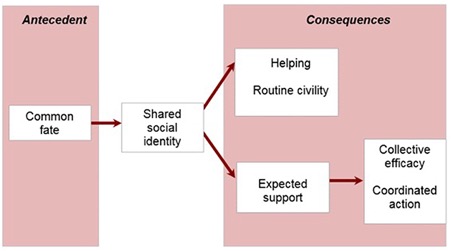
We studied what happens when police use unexpectedly indiscriminate and illegitimate force to remove peaceful protesters from a gathering
researchgate.net/publication/22…
tl;dr: participants became radicalized against the police

researchgate.net/publication/22…
tl;dr: participants became radicalized against the police


2.
After the police's violent eviction of protesters, participants saw themselves as similar to others fighting for justice, and as part of a wider movement:
researchgate.net/publication/25…
After the police's violent eviction of protesters, participants saw themselves as similar to others fighting for justice, and as part of a wider movement:
researchgate.net/publication/25…

3.
While the violent eviction caused anger and distress, being part of a wider group was empowering and inspired further action
citeseerx.ist.psu.edu/viewdoc/downlo…
While the violent eviction caused anger and distress, being part of a wider group was empowering and inspired further action
citeseerx.ist.psu.edu/viewdoc/downlo…
4.
Finally, for some, repeated violence by the police and others undermined the humanistic rationale for ideological non-violence and legitimised a more pragmatic approach
researchgate.net/publication/32…
Finally, for some, repeated violence by the police and others undermined the humanistic rationale for ideological non-violence and legitimised a more pragmatic approach
researchgate.net/publication/32…
• • •
Missing some Tweet in this thread? You can try to
force a refresh





